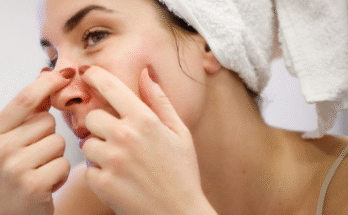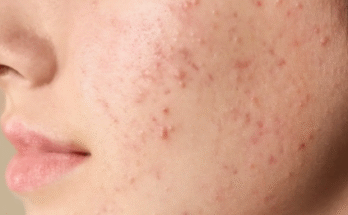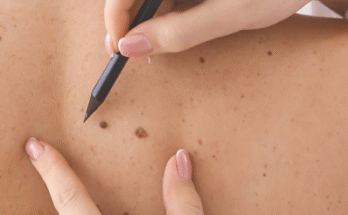Acne is one of those things most people experience at some point in their lives. Whether it’s a few occasional blemishes or more frequent breakouts, the search for a solution can feel endless.
Among the many options available today, zinc supplements have gained attention as a gentle and natural way to support skin health. While they’re not a miracle cure, they can be a helpful part of a broader skincare and wellness routine.
Understanding Acne and Its Common Causes
Before looking into zinc’s role, it helps to understand why acne happens in the first place. Acne develops when pores become clogged with oil, dead skin cells, and sometimes bacteria.
Hormonal changes, stress, diet, and genetics all play a part. This is why two people can eat the same foods or use the same skincare products but have very different skin experiences.
Inflammation also plays a major role in acne. When the body’s natural defense system reacts to clogged pores, redness and swelling can occur. That’s where nutrients like zinc may come in handy, since they’re known to support the body’s natural healing and immune responses.
What Is Zinc and Why Does It Matter?
Zinc is a trace mineral — meaning our bodies only need it in small amounts, yet it plays a big role in many essential processes. It supports the immune system, helps with wound healing, and assists in cell growth and repair. Because the skin renews itself constantly, having enough zinc helps this renewal process run smoothly.
Foods rich in zinc include pumpkin seeds, beef, lentils, chickpeas, and cashews. However, not everyone gets enough from diet alone, especially those who follow plant-based or restrictive eating patterns. That’s one reason zinc supplements have become popular for those wanting to fill nutritional gaps.
How Zinc Supplements May Support Clearer Skin
When it comes to acne, zinc may support the skin in several indirect ways. It helps regulate oil production, supports the body’s natural response to irritation, and encourages the skin to heal after breakouts. These effects are gentle and gradual, which makes zinc supplements appealing to people who prefer a natural, less aggressive approach to skincare.
Some studies suggest that individuals with acne tend to have lower zinc levels than those without it. Restoring normal zinc levels through diet or supplements might help maintain balance in the skin’s oil glands. Additionally, zinc is involved in collagen production, which contributes to smoother and healthier-looking skin overall.
It’s important to remember that zinc supplements are not a prescription treatment and shouldn’t replace medical care. They are best viewed as an addition to a balanced diet, proper hydration, good sleep, and a skincare routine suited to your skin type.
Forms of Zinc Supplements
Zinc comes in several forms, and choosing one can sometimes feel confusing. The most common forms found in dietary supplements include zinc gluconate, zinc citrate, and zinc picolinate. These are generally well-tolerated and absorbed by the body.
Zinc sulfate is another option, though it may occasionally cause mild stomach discomfort for sensitive individuals. To reduce the chance of this, zinc is often best taken with food, unless otherwise directed by a healthcare provider.
Some people also choose topical zinc products, such as creams or serums, which can be applied directly to the skin. These may help soothe irritation or redness. However, supplements and topical products work differently, so it’s worth understanding how each fits into your routine.
How to Take Zinc Safely
For most adults, the recommended daily amount of zinc is about 8 to 11 milligrams, depending on age and gender. Many zinc supplements provide this amount, while others contain higher doses. More isn’t necessarily better — too much zinc can upset the stomach or interfere with the absorption of other minerals like copper.
It’s always wise to check supplement labels carefully and avoid exceeding the suggested serving. If you’re unsure, or if you have an existing medical condition, it’s best to talk with a healthcare professional before adding any new supplement. They can help determine what’s appropriate for your personal needs.
Combining Zinc with a Balanced Lifestyle
Supplements work best as part of an overall healthy lifestyle. Zinc alone won’t make breakouts vanish overnight, but it can complement good habits that promote clearer skin over time. Eating plenty of fruits, vegetables, and whole grains supports the body’s natural balance. Staying hydrated and getting enough rest are equally important, as the skin often reflects how the body feels on the inside.
It’s also a good idea to maintain a consistent skincare routine. Gentle cleansing, avoiding harsh scrubs, and using non-comedogenic moisturizers can all help keep pores clean without stripping the skin. Managing stress through mindfulness, exercise, or hobbies can make a noticeable difference too, since stress hormones can influence oil production.
When to Expect Results
Everyone’s body responds differently to nutritional support. Some people may notice small improvements within a few weeks, while for others it might take a couple of months. Patience is key. Because zinc works by supporting the body’s natural functions rather than masking symptoms, the effects tend to build gradually and last longer when combined with good overall habits.
Tracking changes can be helpful. Keeping a simple skin journal — noting any changes in your diet, sleep, or supplement use — makes it easier to see what works best for you.
Signs You Might Be Getting Enough Zinc
If your zinc levels are balanced, you may notice healthier-looking skin, faster healing from blemishes, and stronger nails or hair. These can be positive signs that your body is benefiting from adequate nutrition.
However, balance matters. Taking more zinc than needed can cause side effects such as nausea or digestive discomfort. If you ever experience these, it’s best to pause and seek advice from a professional.
Final Thoughts
Zinc supplements are a gentle and accessible way to support skin health from the inside out. They don’t replace good skincare or a balanced diet, but they can play a valuable role in helping your body maintain clear, resilient skin.
Choosing a high-quality supplement from a trusted brand, following recommended dosages, and pairing it with consistent self-care can make a meaningful difference over time. Acne can be frustrating, but small, steady steps like this often lead to long-lasting improvement.
At the end of the day, your skin deserves patience and care. Supporting it with nutrients such as zinc, nourishing foods, and daily kindness can go a long way toward helping it look and feel its best.


